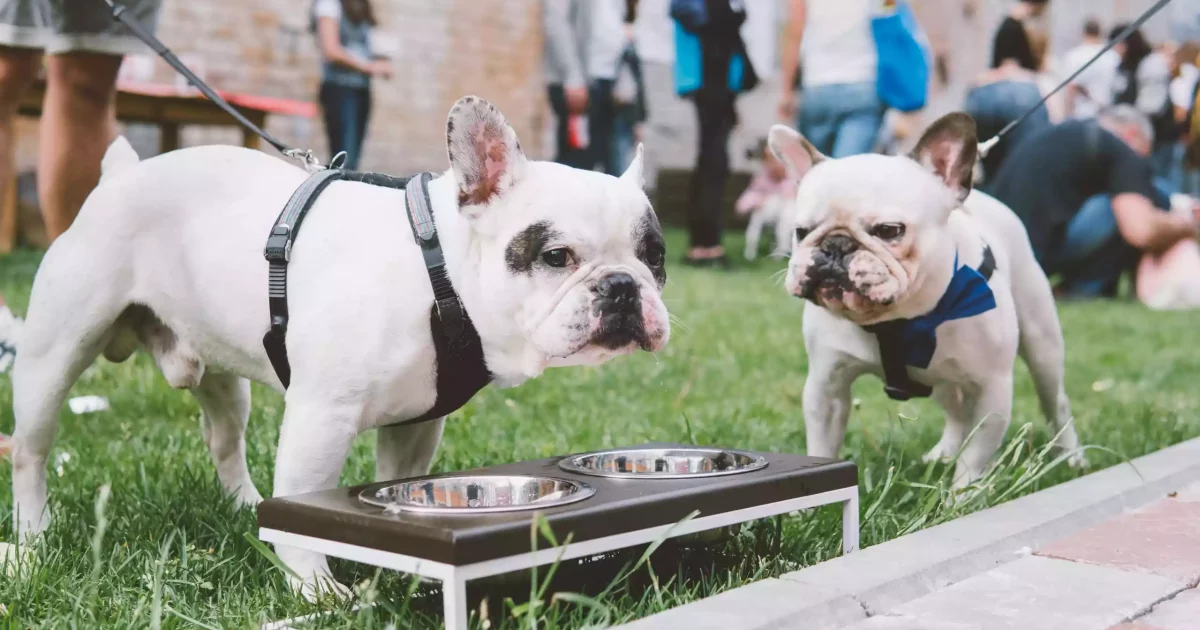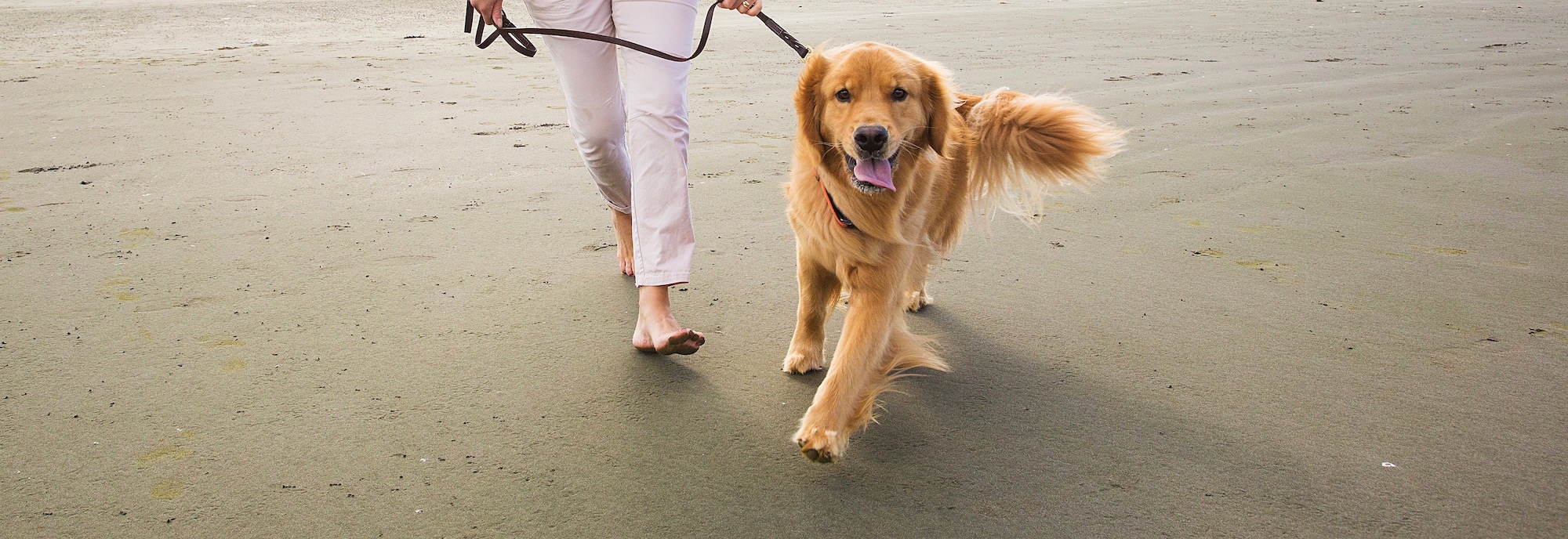

All about French Bulldog
A small, muscular dog with a smooth coat and a distinctive "bat-like" ear shape.
Introduction
French Bulldogs, with their unique appearance and infectious energy, have established themselves as one of the most adored dog breeds in the world. Their charm, captivating personalities, and clownish behaviour have won the hearts of dog enthusiasts far and wide. Despite their glum expressions, these small to medium-sized dogs ooze playfulness, alertness, and adaptability that make them truly irresistible. With their miniature Bulldog-like features, accentuated by their iconic upright ‘bat ears,’ French Bulldogs effortlessly stand out from the pack.
Physical Description
| Weight | Up to 14 kg |
|---|---|
| Height | Up to 30 cm |
| Coat Length | Short |
| Colour | Brindle, fawn, pied, cream, black, white, blue,merle and lilac |
Breed History
The origin of French Bulldogs, nicknamed ‘Frenchies’, is the subject of much speculation. The most widely accepted view is Lace Worker Migration Theory. Toy Bulldogs were popular among lacemakers in Nottingham, England as they liked to use them as lap warmers while they worked. When the lace industry in England declined during the industrial revolution, many lacemakers moved to France and took their dogs with them.
Toy Bulldog trading between England and France became common, with English breeders gladly selling dogs they considered to have ‘faults’ to the French. These ‘faults’ refer to characteristics that were not desirable in the show ring according to the English breed standards, included bat ears (ears that stand up) and a compact, muscular body.
These toy Bulldogs were crossed with Terriers, Ratters and Pugs to create the French Bulldog we know and love today. French Bulldogs first gained popularity among Parisians and later became a status symbol within French society, appealing to artists, businessmen, and aristocrats. Affluent Americans who visited Paris succumbed to the irresistible allure of the French Bulldog and brought them back to America.
Personality
French Bulldogs are known for their unique and charming personalities that set them apart from other dog breeds. These little dogs are known for their affectionate and playful nature, making them a popular choice among dog lovers worldwide. The French Bulldog is a breed that is renowned for its loyalty and devotion to its owners. They are a small and muscular breed that has a big personality, with a friendly and outgoing demeanour.
One of the most notable traits of French Bulldogs is their affectionate nature. They love to be around their owners and will follow them around the house, always seeking attention and affection. They are also known for their playful nature and they are always up for a game of fetch or chase. They are great with children and make excellent family pets due to their gentle nature.
Another fascinating aspect of the French Bulldog’s personality is its intelligence. They are quick learners and can be trained to perform a wide range of tricks and commands. They are also highly adaptable and can adjust well to different living situations, whether it’s in a small apartment or a large house. They are also quite adaptable to different climates, making them a great choice for pet owners who live in a variety of locations.

Things you should know about French Bulldog
French Bulldogs prefer to live indoors with their owners and are not suited for outdoor living. They are susceptible to heat exhaustion due to their shortened snouts, and should not be left outdoors for extended periods. French Bulldogs are a good choice for small apartments, condos, townhomes, farmhouses, and larger homes in the country. As long as they have a dedicated space in the house where they can spend time with their owners, French Bulldogs can thrive in any home setting. It is important to note that French Bulldogs require daily exercise to stay in shape, so owners should be prepared to walk them for 15 minutes twice a day.
Exercise Needs
These dogs are not particularly active, but they still require daily exercise to maintain their physical and mental health. A daily walk or a game of fetch in the backyard should suffice. French Bulldogs need at least one or two daily walks to keep their muscles strong and limber, and to keep their weight in check. A 15-20 minute walk at a moderate pace will help satisfy their exercise needs while preventing them from becoming overly exhausted.
Indoor play is essential for French Bulldogs, as they can be prone to overheating when exercising outdoors. Engage your Frenchie in games like fetch with soft toys, tug-of-war, or hide-and-seek to stimulate their mind and body without putting too much strain on their short snouts and small frame. Indoor play is essential for Frenchies, as they can overheat when exercising outdoors. Therefore, engaging them in games like fetch with soft toys, tug-of-war, or hide-and-seek will help stimulate their mind and body without putting too much strain on their short snouts and small frame. Mental exercise is as important as physical activity for French Bulldogs. Providing puzzle toys, treat-dispensing toys, or interactive games will challenge their intelligence and problem-solving skills and promote mental well-being.
Grooming Needs
When it comes to grooming, French Bulldogs have short, smooth coats that do not require a lot of maintenance. However, they do shed, so regular brushing is necessary to keep their coat healthy and shiny. Additionally, you should clean their ears regularly and trim their nails as needed.
Teeth and Dental Considerations
Maintaining good dental hygiene is an important aspect of caring for a French Bulldog, according to Web Search Results. Regular dental check-ups and cleanings are recommended to prevent dental problems. Brushing their teeth regularly with dog-specific toothpaste and toothbrushes is also important to prevent the buildup of plaque and tartar. Providing dental chews and toys can also help clean their teeth and freshen their breath. Watching their diet and avoiding sugary treats can also help prevent dental issues. It is important to pay special attention to the back teeth, which are more prone to plaque buildup. To ensure cooperation and make the experience more pleasant, it is recommended to clean the French Bulldog’s teeth when it is tired and to reward it with a treat afterwards.
Price Check: How Much Is That Doggy in the Window?
The cost of a French Bulldog in Australia can vary depending on various factors such as breeding line, age, gender, and location. On average, a French Bulldog puppy in Australia costs around $1,000. However, some breeders may charge between $3,500 to $4,500. It’s important to do your research and choose a reputable breeder who provides fully health-tested puppies. According to the French Bulldog Clubs of NSW & VIC, a puppy from fully health-tested parents should cost between $4,000 to $5,000.
Choosing a Breeder: The Paw-perfect Match
Choosing a breeder for your French Bulldog is a crucial step in ensuring that you get a healthy and well-bred puppy. According to the Web Search Results, it’s important to find a knowledgeable and ethical breeder who prioritises the welfare of the breed. Ethical breeders provide documentation, support, and guidance throughout the puppy’s life. They prioritise the health and welfare of the puppies and maintain high-quality standards. Potential buyers should be wary of breeders offering abnormally low prices. It’s essential to ask the breeder questions about the puppy’s history, the parents’ health conditions, and the living conditions of the puppies. Additionally, buyers should check if the parents and puppies have been examined by a vet. Ultimately, finding a reputable breeder who is willing to answer questions and provides support is crucial in buying a healthy French Bulldog puppy.
Finding the Right Puppy: Love at First Sniff
You can start by searching for reputable breeders in your area. Some well-known French Bulldog puppy breeders in Australia include Frogwyck Kennels, Ocean Crest French Bulldog, Themistocles, Perreux French Bulldog, Lashaoon French Bulldogs, and Kaysand French Bulldog. If you’re looking for a French Bulldog puppy for sale in Australia, it’s important to do your research to ensure you find a reputable breeder who raises healthy and well-socialized puppies. Start by researching the breed to understand its temperament, activity level, and any health concerns that may be common in the breed.
Once you are familiar with the breed, start looking for breeders who specialise in French Bulldogs. Check online directories and breed clubs for recommended breeders, and ask for referrals from other French Bulldog owners or veterinarians.
When you find a breeder, ask for their health guarantee and contract, as well as any health testing they have done on the parents. Visit the breeder to meet the puppies and ask questions about their socialisation and care.
By following these guidelines, you can find a healthy and happy French Bulldog puppy that will make a great addition to your family.
As a French Bulldog owner, you know how much joy and entertainment your furry friend can bring to your life. One way to keep your French Bulldog happy and engaged is by providing them with the right toys and games. It is essential to choose toys that are safe, durable, and suitable for their size and activity level. French Bulldogs are active and intelligent dogs, and they require toys that challenge their minds and bodies.
One of the most popular toys for French Bulldogs is the Kong Classic Dog Toy. This toy is made of durable rubber and can withstand heavy chewing and playing. It can be filled with treats or peanut butter, providing your French Bulldog with hours of entertainment.
Another great toy for French Bulldogs is the Chuckit! Ultra Ball. It is made of high-quality rubber and is perfect for playing fetch. The ball bounces erratically, making it more challenging and fun for your French Bulldog to catch.
When it comes to games, French Bulldogs love to play tug-of-war. You can use a rope toy or a tug toy to play this game with your furry friend. It is a great way to bond with your French Bulldog and provide them with physical exercise.
Puzzle toys are also an excellent choice for French Bulldogs. They are mentally stimulating and can keep your furry friend occupied for hours. The Nina Ottosson Dog Tornado Puzzle Toy is a popular choice among French Bulldog owners. It requires your dog to use its problem-solving skills to find hidden treats.
Common Ailments
French Bulldogs are prone to a variety of health issues that owners need to be aware of. As a responsible pet owner, it is important to understand the common health problems that French Bulldogs face so that you can take proactive measures to keep your furry friend healthy and happy.
is a common condition in French Bulldogs and can be caused by bacterial or fungal infections, allergies, or a blocked tear duct. Treatment for conjunctivitis in French Bulldogs depends on the underlying cause. Bacterial infections can be treated with antibiotics, while fungal infections can be treated with antifungal medication. Topical medications such as gentamicin, tobramycin, chloramphenicol, or oxytetracycline may also be used to treat conjunctivitis in French Bulldogs. If the conjunctivitis is caused by a blocked tear duct, surgery may be required, followed by eye drops and antibiotics. If you suspect that your French Bulldog has conjunctivitis, it’s important to consult with a veterinarian for proper diagnosis and treatment.
Skin fold dermatitis, also known as intertrigo, is a common condition among French Bulldogs. It is caused by frictional trauma that results in inflammation and microbial overgrowth of closely opposed skin surfaces. Moisture and buildup can get trapped in the skin folds, leading to inflamed skin and bacterial or fungal infections. The deep skin folds around the face, neck, tail, and paws of French Bulldogs make them particularly susceptible to skin fold dermatitis. Symptoms include redness, itching, discharge, and foul odour. Treatment for skin fold dermatitis in French Bulldogs involves keeping the affected area clean and dry, using medicated wipes, and possibly applying a topical medication such as miconazole or ketoconazole cream. In severe cases, antibiotics may be necessary to treat the infection. Regular grooming and hygiene can help prevent skin fold dermatitis in French Bulldogs.
Pyoderma, a bacterial skin infection, is a common issue among French Bulldogs, especially those with skin folds. The most common bacteria causing pyoderma in dogs is Staphylococcus pseudintermedius. Pyoderma in French Bulldogs can occur due to skin friction from skin folds rubbing together, breaking the skin’s surface and creating a breeding ground for bacteria. Warm and humid environments can also contribute to the development of pyoderma in French Bulldogs. Symptoms of pyoderma in French Bulldogs include redness, itchiness, hair loss, and pustules or papules on the skin. Treatment for pyoderma in French Bulldogs includes antibiotics, topical medications, and keeping the affected area clean and dry. Consultation with a veterinarian is recommended for proper diagnosis and treatment.
can occur in French Bulldogs. URTIs in French Bulldogs can manifest as coughing, sneezing, nasal discharge, eye discharge, and breathing difficulties. Viruses or bacteria can cause the infections and can lead to pneumonia in severe cases
BOAS is a common health issue in brachycephalic breeds such as French Bulldogs. It is a breed-related disorder that affects the upper airways, meaning affected animals cannot breathe normally, especially during exercise or in warm environments. The syndrome can include several abnormalities, such as stenotic nares (abnormally narrow nostrils that restrict airflow), elongated soft palate, hypoplastic trachea, and everted laryngeal saccules. French Bulldogs with BOAS may exhibit symptoms such as noisy and laboured breathing, exercise intolerance, heat intolerance, and sleep-disturbed breathing.
Knose Pet Insurance does not automatically cover BOAS. However, pet owners can apply for coverage by completing a BOAS Cover Application Form. If the application is approved, BOAS-related treatments may be covered under the policy.
Conclusion

Explore more breeds


French Bulldog

Labradoodle

Border Collie

Cavoodle
Frequently Asked Questions
What does Knose Pet Insurance cover?
We’ve got your back for accidents, injuries, illnesses, and even essential euthanasia. You can also add optional extras like dental illness, behavioural conditions, and specialised therapies to suit your pet’s unique needs.

How to Understand Your Dog’s Body Language
1 April 2025
7 Ways to Extend Your Dog’s Lifespan
25 March 2025
How to introduce dogs the right way
24 March 2025
Consent training in dogs: How to build their trust
22 March 2025
Guide to Puppy Socialisation
5 July 2024


